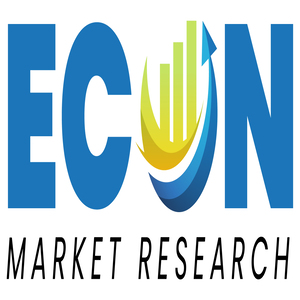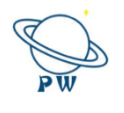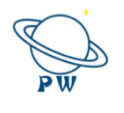Solving Water Woes: Portable Desalination System Market Poised to Reach USD 3,593.09 Million by 2031, Riding on a Robust 11.56% Compound Annual Growth Rate (CAGR)
Research Reports
Feb 18, 2024

The global Portable Desalination System Market is projected to reach USD 3,593.09 million by 2031, at a CAGR of 11.56%, from USD 1306.78 million in 2022. The portable desalination system market is expected to continue to grow in the coming years due to the growing water scarcity and the looming global water crisis have intensified the need for innovative water solutions.
A significant advancement in the field of water purification technology, the market for portable desalination systems has shown a remarkable upsurge in recent years. These little devices gained popularity because they were effective and portable, providing a revolutionary response to water scarcity. These systems were introduced in response to the growing global water issue with the goal of democratizing access to potable, clean water, especially in isolated or disaster-affected areas. These mobile desalination devices promised a flexible and scalable method of treating water by utilizing cutting-edge membrane technologies. Their lightweight design and effortless implementation made them vital for a range of uses, including outdoor excursions and disaster relief operations.
Furthermore, by lowering dependency on traditional power sources, developments in the incorporation of renewable energy improved their sustainability. Governmental initiatives, growing demand for decentralized water treatment technologies, and growing environmental concerns all contributed to the market’s rise. Humanitarian relief organizations, homes, and businesses with water-intensive activities began to adopt these systems as they developed into more affordable and user-friendly options. The market for portable desalination systems emerged as a ray of hope, providing a workable solution to the world’s problems with water scarcity.
Gain expert insights and supercharge your growth strategies. Request our market overview sample: https://www.econmarketresearch.com/request-sample/EMR00204
In May 2023, A novel water purification technology is developed by Indian experts. Solar energy is used by thermal desalination systems to function. The IISc team has now created a desalination unit design that runs on solar electricity. The system’s purpose is to capture and make use of the heat generated during condensation.
Market Dynamics
Based on technology type, the global portable desalination system market is divided into reverse osmosis, electrodialysis, thermal desalination. The reverse osmosis category dominates the market with the largest revenue share. To remove salts and other contaminants from water, RO uses a semi-permeable membrane. Water molecules are forced through the barrier by pressure, keeping impurities outside. Because of its adaptability and comparatively low energy usage, this technology is widely used. RO systems can be scaled for a variety of uses, ranging from large-scale industrial applications to residential units. Where, ED utilizes ion-selective membranes and an electric field to separate salt ions from water molecules. Positively and negatively charged ions move through alternating membranes, resulting in desalinated water. ED systems can be efficient in treating brackish water and are often used in combination with other technologies. They have lower energy consumption compared to thermal methods. Thermal desalination includes methods like Multi-Stage Flash (MSF) and Multi-Effect Distillation (MED). These methods involve heating seawater to create vapor, which is then condensed to produce freshwater. They can handle high salinity levels and are suitable for some specific applications like power plants.
The military segment is the largest segment of the portable desalination system market, based on application type. Portable desalination systems are crucial for military operations in remote or crisis-stricken areas where access to clean water is limited. These units provide immediate access to potable water for troops, ensuring their hydration and sustaining operations in challenging environments. Where, during natural disasters or humanitarian crises, portable desalination systems play a pivotal role in providing clean water rapidly. They offer immediate relief by purifying water from contaminated sources, addressing the urgent need for safe drinking water. In regions facing water scarcity, portable desalination systems support agricultural activities by providing a supplementary water source. They help farmers access water for irrigation, enabling crop cultivation in areas with limited freshwater resources. Industries operating in remote areas or locations without access to municipal water supplies utilize portable desalination systems for their water needs. These systems cater to various industrial processes requiring purified water, such as manufacturing, mining, or construction.
The market encountered obstacles pertaining to elevated production expenses and restricted efficacy, impeding extensive implementation. However, dynamic developments have been sparked by R&D initiatives and technological advancements. Reverse osmosis and nanotechnology are two examples of ongoing advancements in membrane technology that have increased efficiency and made these systems more feasible and affordable. Concerns about the environment and water scarcity further impact market dynamics, requiring governments, non-governmental organizations, and businesses to look for sustainable solutions. This has led to a rise in funding and joint ventures focused on creating transportable desalination systems that are economical and environmentally friendly by using renewable energy sources. Market oscillations are also influenced by regional water stress and geopolitical considerations. Portable desalination systems are in high demand for emergency relief efforts in areas that are vulnerable to natural catastrophes or water scarcity. On the other hand, stable areas with strong infrastructure can see a slow but continuous integration of these systems for a range of uses, such as small-scale industrial operations or leisure activities. Preferences and consumer awareness are also important factors. Compact, user-friendly, and sustainable solutions are becoming more and more popular as people become more aware of the effects conventional desalination technologies have on the environment and water quality. This is changing the market and spurring innovation.
Elevate Your Business Strategy! Purchase the Report for Market-Driven Insights: https://www.econmarketresearch.com/request-discount/EMR00204
Regional Analysis
The portable desalination system market in Asia Pacific is expected to lead globally. Numerous areas of the region are severely affected by water scarcity due to fast urbanization, population development, and environmental deterioration. Water scarcity is a problem in nations like Australia, China, and India, which makes the use of portable desalination equipment imperative. Asia Pacific also has a strong manufacturing sector and advanced technological capabilities. This promotes innovation and technological advances in desalination, making it easier to create compact, cost-effective, and more efficient systems that are suited to the various needs of the area. The market is further propelled by government initiatives and investments in sustainable infrastructure. As a result of their investments in cutting-edge technologies and emphasis on water management, several of the region’s nations have created an atmosphere that is favorable to the expansion of portable desalination units. Additionally, the adoption of eco-friendly solutions is encouraged by the growing awareness of environmental concerns. With the increasing emphasis on environmental activities in the region, portable desalination systems are becoming more sustainable and integrating renewable energy sources. The Asia Pacific region is leading the global portable desalination system market and is expected to grow significantly in the near future due to the convergence of several factors, including water scarcity challenges, technological innovation, government support, and environmental consciousness.
The report “Portable Desalination System Market Size, Share & Trends Analysis Report by Technology Type (Reverse osmosis, Electrodialysis, Thermal desalination), by Capacity Type (Small-scale, Medium-scale, Large-scale systems), by Application Type (Military, Disaster relief, Recreational, Agricultural, Industrial sectors), and by Region (North America, Europe, APAC, MEA, and CSA), and Segment Forecasts, 2023 – 2031” is available now to Econ Market Research customers and can also be purchased directly from: https://www.econmarketresearch.com/
Further key findings from the report suggest:
- The global portable desalination system market is predicted to register a compound annual growth rate (CAGR) of 11.56% over the projected period of 2023-2031.
- Asia Pacific will be the leading region of the global portable desalination system market during the forecast period of 2023-2031.
- The major key players in the global portable desalination system market are: Ultratec, Quality Filtration Systems, RODI, ELW Global, Dongwu Rundeao, Zhuhai Jianghe Seawater Treatment Technology, Zhuhai SEAMA, and Zhuhai Wangyang Water Treatment Equipment.
Read More Information about Portable Desalination System Market: https://www.econmarketresearch.com/industry-report/portable-desalination-system-market/
Econ Market Research has segmented the global portable desalination system market based on technology type, capacity type, application type and region:
Portable Desalination System Market by Technology Type (Revenue, USD Billion, 2023-2031)
- Reverse osmosis
- Electrodialysis
- Thermal desalination
Portable Desalination System Market by Capacity Type (Revenue, USD Billion, 2023-2031)
- Small-scale
- Medium-scale
- Large-scale systems
Portable Desalination System Market by Application Type (Revenue, USD Billion, 2023-2031)
- Military
- Disaster relief
- Recreational
- Agricultural
- Industrial sectors
Portable Desalination System Market Regional Analysis (Revenue, USD Billion, 2023-2031)
- North America
- U.S.
- Canada
- Mexico
- Europe
- Germany
- U.K.
- France
- Italy
- Spain
- Rest of Europe
- Asia Pacific
- China
- India
- Japan
- South Korea
- Australia
- Rest of Asia Pacific
- Middle East & Africa
- Saudi Arabia
- UAE
- South Africa
- Rest of MEA
- Latin America
- Brazil
- Argentina
- Rest of Latin America
Top Trending Reports of Econ Market Research:
Hemostats Market Growth: The global Hemostats market was valued at USD 2.58 billion in 2022 and is estimated to reach approximately USD 4.78 billion by 2031, at a CAGR of 7.0% from 2023 to 2031.
Analytical Standards Market Trends: The global analytical standards market was valued at USD 1.32 billion in 2022 and is estimated to reach approximately USD 2.48 billion by 2031, at a CAGR of 7.2% from 2023 to 2031.
Personal Protective Equipment Market Analysis: The global personal protective equipment (PPE) market was valued at USD 58.2 billion in 2022 and is estimated to reach approximately USD 99.8 billion by 2031, at a CAGR of 6.1% from 2023 to 2031.
Night Vision Device Market Sales: The global night vision device market was valued at USD 7.35 billion in 2022 and is estimated to reach approximately USD 15.98 billion by 2031, at a CAGR of 9.0% from 2023 to 2031.
Computer Numerical Control Machines Market Outlook: The global Computer Numerical Control Machines (CNC) Market was valued at USD 64.8 billion in 2022 and is estimated to reach approximately USD 91.4 billion by 2031, at a CAGR of 3.9% from 2023 to 2031.
Carbon Fiber Market Volume: The global carbon fiber market was valued at USD 5.26 billion in 2022 and is estimated to reach approximately USD 15.84 billion by 2031, at a CAGR of 13.0% from 2023 to 2031.
Compressed Natural Gas Market Application: The global compressed natural gas market was valued at USD 145.80 billion in 2022 and is estimated to reach approximately USD 485.54 billion by 2031, at a CAGR of 14.3% from 2023 to 2031.
Agriculture Micronutrients Market Size: The global agriculture micronutrients market was valued at USD 4.35 billion in 2022 and is estimated to reach approximately USD 9.22 billion by 2031, at a CAGR of 8.7% from 2023 to 2031.
About Us:
Econ Market Research provides comprehensive industry research and actionable intelligence. We assist our clients in obtaining solutions to their research needs through our syndicated and consulting research services. We specialise in semiconductors and electronics, aerospace and defence, energy, automotive and transportation, healthcare, manufacturing and construction, media and technology, chemicals and materials, and materials.
Contact Us:
Econ Market Research
E-mail: [email protected]
Phone: (+1) 812 506 4440.
Website: – https://www.econmarketresearch.com
LinkedIn: – https://www.linkedin.com/company/econ-market-research/
Twitter: – https://twitter.com/econ_market
Facebook: – https://www.facebook.com/econmarketresearch
Instagram: – https://www.instagram.com/econmarketresearch/
Contact Information:
Econ Market Research E-mail: [email protected] Phone: (+1) 812 506 4440. Website: – https://www.econmarketresearch.com LinkedIn: – https://www.linkedin.com/company/econ-market-research/
Tags:
BNN, Extended Distribution, Go Media, Go Media2, iCN Internal Distribution, Research Newswire, English




